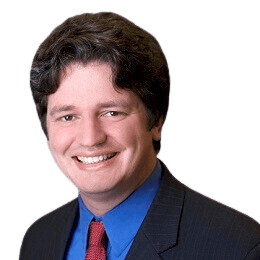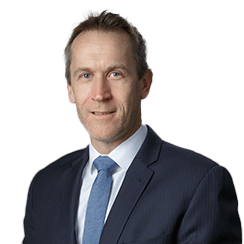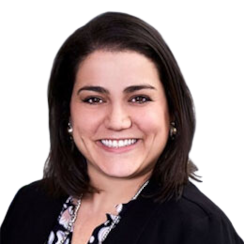Berger Montague Files Class Action Lawsuit Against Philips on Behalf of Consumers Who Purchased Philips’ Recalled CPAP, BiPAP, and other Sleep Apnea Machines and Ventilators
PHILADELPHIA, June 30, 2021 – The national plaintiffs’ law firm Berger Montague has filed a class action lawsuit against Dutch medical equipment company Philips to protect consumers harmed by Philips’ recalled sleep apnea machines, including CPAP and BiPAP machines, and ventilators, which may increase users’ risk of cancer and pulmonary fibrosis, and cause other injuries such as headaches, irritation, inflammation, respiratory issues, and exposure to materials with toxic and carcinogenic effects. The case is Shelton v. Koninklijke Philips N.V., et al., No. 1:21-cv-11076 (D. Mass.). A copy of the complaint is available here.
On June 14, 2021, Philips announced a recall of many of its Continuous Positive Airway Pressure (CPAP) and Bilevel Positive Airway Pressure (BiPAP) machines, which are used to treat sleep apnea, and ventilators, which treat respiratory failure. The recalled products contain polyester-based polyurethane (PE-PUR) foam for sound abatement. It has now been revealed that the PE-PUR foam may break down and be inhaled or ingested and may emit volatile organic compounds (VOCs) resulting in adverse effects to organs, and even cancer. In an announcement to doctors, Philips explained that these hazards could result in “serious injury which can be life-threatening or cause permanent impairment.” Specifically, Philips stated that it “has received reports of possible patient impact due to foam degradation. The potential risks of particulate exposure include headache, irritation, inflammation, respiratory issues, and possible toxic and carcinogenic effects. The potential risks of chemical exposure due to off-gassing include headache, irritation, hypersensitivity, nausea/vomiting, and possible toxic and carcinogenic effects.”
Sleep apnea is a sleeping disorder in which breathing is disturbed temporarily during sleep. Breathing may stop or become very shallow. This may be associated with fatigue, daytime sleepiness, interrupted sleep, or snoring, among other symptoms. Serious cases can lead to hypertension, heart attack, or stroke, among other medical ailments. CPAP therapy is a common treatment for sleep apnea. In CPAP therapy, a machine delivers a flow of air through a mask over the nose or mouth, which increases air pressure in the throat so that the airway does not collapse during inhalation. CPAP therapy assists breathing during sleep and can successfully treat sleep apnea.
Philips’ flagship CPAP/BiPAP machine product family is known as the “DreamStation” family line, which includes the original DreamStation, launched in October 2015, and the DreamStation Go (a travel version). Philips sells DreamStation products through its subsidiary Respironics, which Philips acquired in 2008.
Plaintiff’s Complaint alleges that Philips knew about these substantial and material risks from its CPAP machines long before the recall. The Complaint alleges that patients who used the affected devices have complained to Philips about black particles in their machines for many years, but Philips did not warn the public about the hazards until late April 2021 and did not recall its machines until June 14, 2021. The Complaint also alleges that Philips self-servingly timed its recall to coincide with its launch of its next generation of CPAP products that do not suffer from the same issues. Thus, the only safe option that Philips offers to its customers—many of whom need and rely on the recalled breathing machines—is to purchase Philips’ newer model, profiting Philips further.
The Complaint alleges that Philips has no concrete timeline for replacing the recalled CPAP machines and other devices and may not provide replacements for a year or more, even though patients need to use their devices every day. As a result, the recall leaves patients without safe, free options and patients are going to be forced to buy Philips’ next-generation product or a competitor’s product—at full price.
“This important class action lawsuit seeks to recover all damages suffered by consumers who purchased the recalled CPAP devices, and have Philips replace them free of charge with safe and effective devices,” said Shanon Carson, Plaintiffs’ attorney and Managing Shareholder of Berger Montague. “Our clients and the many patients who have contacted us should not have to deal with finding out that they have been breathing volatile organic compounds harmful to their health. It is outrageous and we look forward to fighting on their behalf to obtain a resolution with Philips that provides damages for their economic and personal injuries. If there is any person that believes they have been injured by these recalled machines, or has inside information that can help the case, we encourage them to please contact us.”
More information about this case, Shelton v. Koninklijke Philips N.V., et al., No. 1:21-cv-11076 (D. Mass.), now pending in the United States District Court for the District of Massachusetts, is available at www.bergermontstg.wpengine.com/philips-recall, including the precise list of recalled CPAP/BiPAP machines and ventilators. The recalled machines by Philips include the following models: E30; DreamStation ASV; DreamStation ST, AVAPS; SystemOne ASV4; C Series ASV, S/T, AVAPs; OmniLab Advanced Plus; SystemOne (Q Series); DreamStation CPAP, Auto CPAP, BiPAP; DreamStation Go CPAP, APAP; Dorma 400, 500 CPAP; REMStar SE Auto CPAP; Trilogy 100 and 200; Garbin Plus, Aeris, LifeVent; A-Series BiPAP Hybrid A30; A-Series BiPAP V30 Auto; A-Series BiPAP A40; and A-Series BiPAP A30.
Berger Montague PC is a national law firm headquartered in Philadelphia with additional offices in Minneapolis, San Diego, and Washington, D.C. The Firm litigates complex civil cases and class actions in federal and state courts throughout the United States. Berger Montague has played lead roles in major cases for over 50 years and has recovered more than $36 billion for its clients and the classes they have represented.














